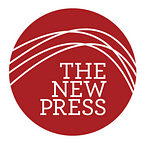Preventing the next public health crisis requires rebuilding trust
By Donald Cohen
A privatized America is a divided America.
Americans who plan to eat one of the 46 million turkeys estimated to be consumed this Thanksgiving aren’t going to want to hear this. U.S. food safety officials have blocked an increasing number of meat shipments from Australia over the last two years, as reported by Reuters last month. The reason? Fecal contamination, which can lead to deadly illness caused by E. coli and other pathogens.
Australia isn’t where most of our turkeys come from — that would be Minnesota. But the news is part of a stomach-churning trend. Last month, Butterball recalled thousands of pounds of ground turkey potentially contaminated with plastic. In July, Tyson recalled almost 9 million pounds of chicken after a listeria outbreak caused at least one death. Cases of foodborne illnesses caused by certain types of bacteria in our food supply increased in 2019, the last year Centers for Disease Control and Prevention data is available. Others, like those caused by listeria, failed to decline despite years of efforts to combat them.
Fortunately, the USDA inspectors found the contaminated Australian meat. But it should be a cause for concern that American poultry and meat inspection systems are heading in the same direction that Australia took when it handed over inspections to the companies themselves.
Since 1998 US Dept of Agriculture allows companies to inspect themselves with their own employees, increase line speeds and allow the agency to significantly reduce the number of federal inspectors. FSIS inspectors are relegated to watching the inspectors, not doing the inspecting.
Undertrained employees are increasingly the front-line inspectors, put in the position of having to decide to stop production if they suspect unsafe food is getting through; forced to choose between the health of a consumer they’d never meet and a boss who saw stoppages as cutting into their profits.
A 2013 analysis of 5000 compliance reports found that company employees missed many defects in poultry carcasses .In one turkey slaughter facility, nearly 100 percent of samples found certain types of defect.
We saw this same instinct to privatize public health in the Trump administration’s initial response to the pandemic that put the private marketplace in charge, putting states and individuals in competition with each other for protective equipment — masks, gowns, and other essentials — driving prices beyond reason. The president’s son-in-law and senior advisor Jared Kushner clarified their intent: “Free markets will solve this. That is not the role of government.”
There’s no doubt that companies don’t want to send tainted food into the market. But without enough government inspectors to protect the food supply, companies now also rely on hiring private auditors to ensure safety and protect themselves from liability. Those auditors, just like the company employees on the line, depend on staying in good stead with the companies that hire them. There’s an incentive baked in to look the other way and there are plenty of cases where a processing plant was given a clean evaluation only to be later determined to be the source of salmonella outbreak that sickened thousands and even led to deaths.
Even with the best intentions, self-inspection is structurally flawed. There are just too many market pressures and embedded incentive structures that, when it comes to public health, can endanger health — and lives. There are too few market signals that could identify the sources of a case of food poisoning with certainty or speed to cause immediate correcting action that free market fundamentalists claim is the key feature of market superiority.
The companies have every right to want to make a profit. But at what cost to the public? The privatized voluntary meat inspection program has been projected to increase company profits by as much as $300 billion. That only happens if they spend less to produce and/or sell more and faster. The most important question to ask is what they will spend less on — fewer inspectors, faster line speeds, fewer line stops (when damaged birds are seen.)
It’s not just the privatization of public health that the private sector sees as a lucrative growth target. Companies in virtually every industry are primed for growth in taking over public functions. Governments across the country spend trillions each year in normal times. Multi-trillion dollar Covid relief packages and the $1 trillion infrastructure bill are putting company marketing and sales departments into high gear.
The problem with all those things is, like the food inspectors, the contractual fine print often puts private interests ahead of public purpose and threatens our ability to serve and protect in profound ways.
But perhaps the most enduring damage come from the constant political, rhetorical, and fiscal attacks on the very agencies entrusted with protecting the public health of the nation — by politicians, right-wing media outlets and industries that claim they can do it better.
A privatized America is a divided America. And it’s an America incapable of solving the problems we face together. It’s an America where we don’t understand each other, we don’t recognize and appreciate our interdependence and common purpose and we don’t trust each other. Those divisions can only be healed if we rebuild those public things that bring us together.
Private industry will have plenty do to — contracts to get, products to sell, roads to build. That’s ok but our most important task to make sure the public is in charge of our public goods, even when private companies do the work.
Donald Cohen is the founder and executive director of In the Public Interest, an Oakland, California–based national research and policy center that studies public goods and services. His opinion pieces and articles have appeared in the New York Times, Reuters, Los Angeles Times, and the New Republic, among others. The co-author (with Allen Mikaelian) of The Privatization of Everything (The New Press), he lives in Los Angeles.
